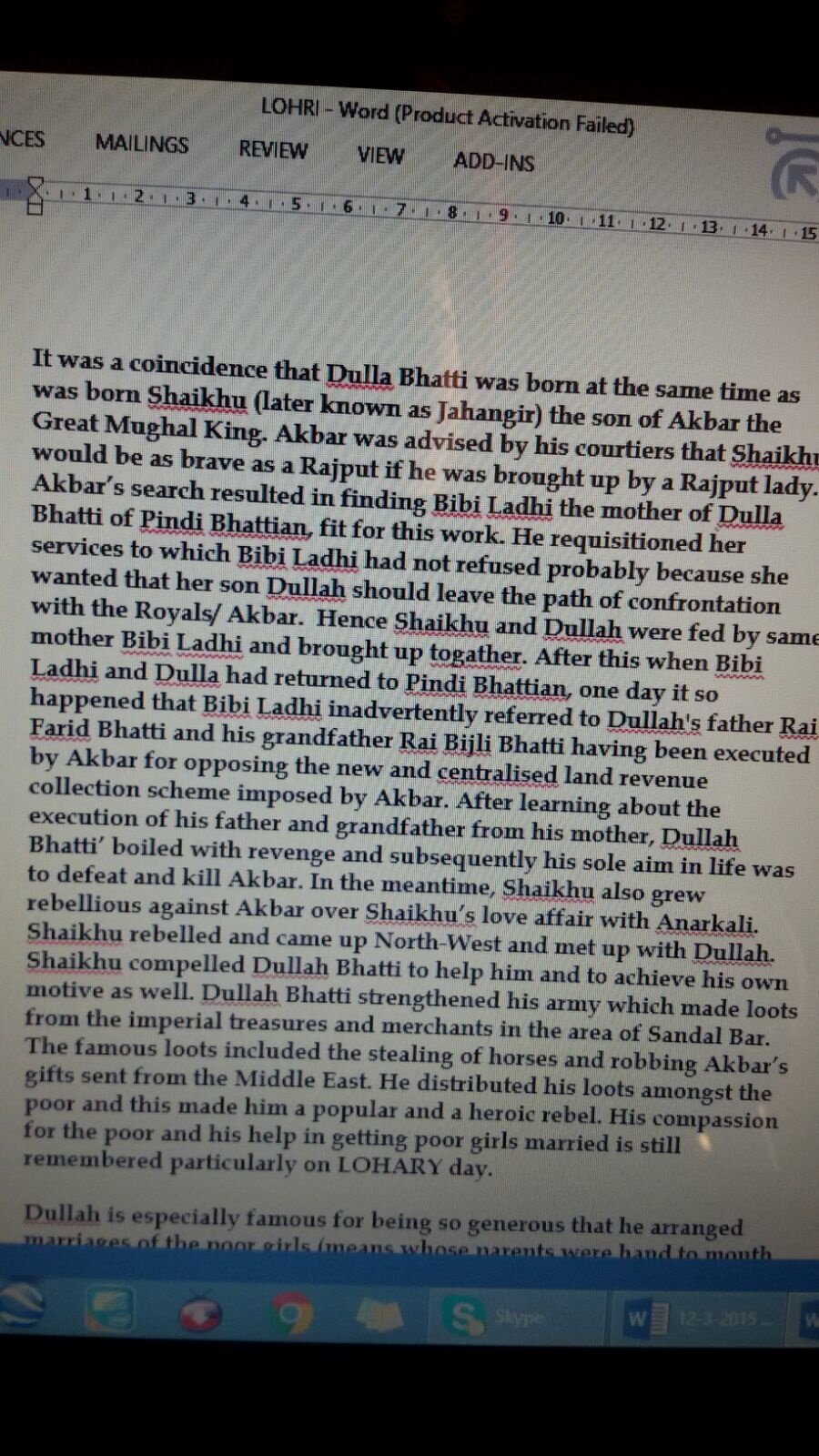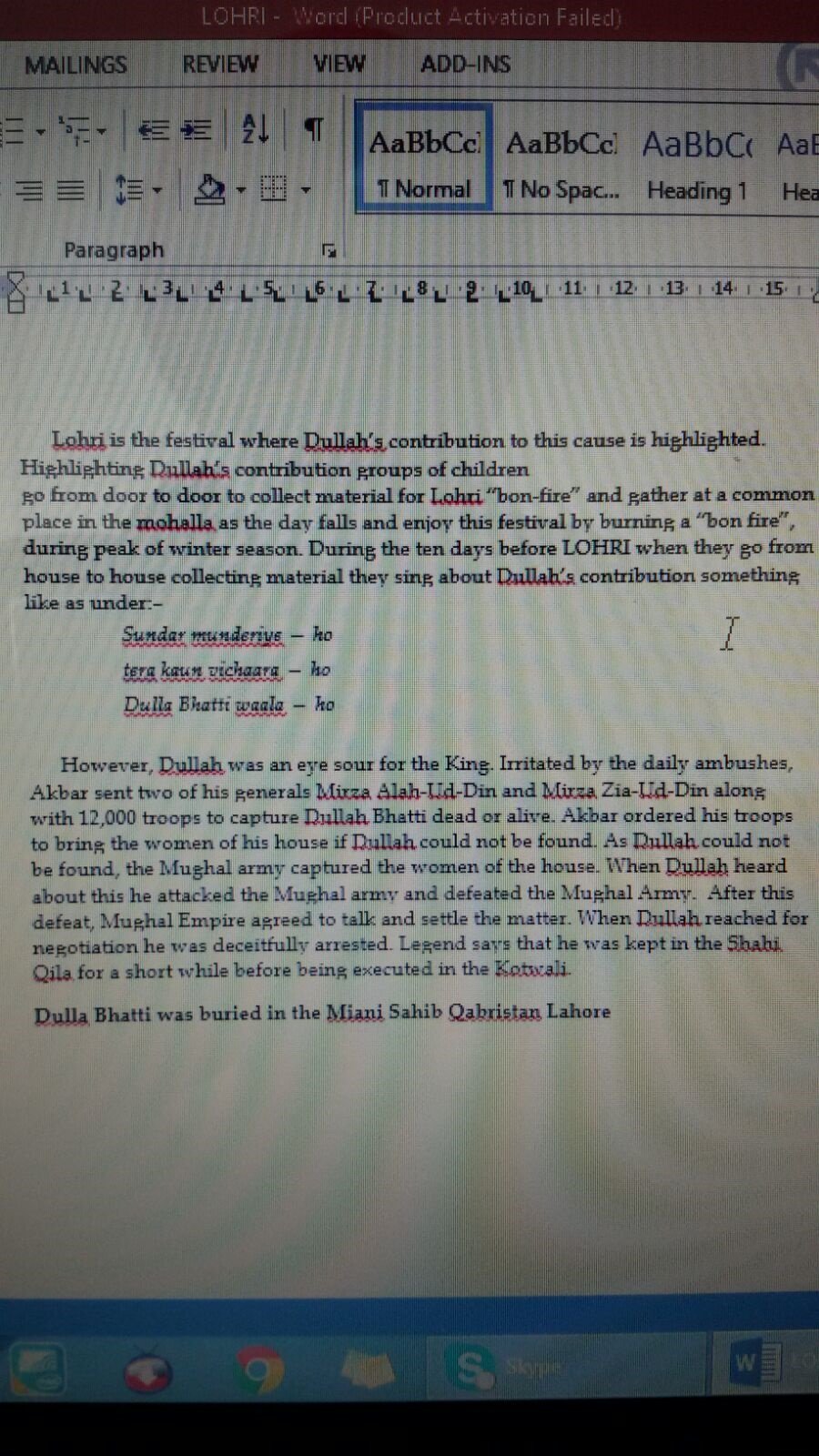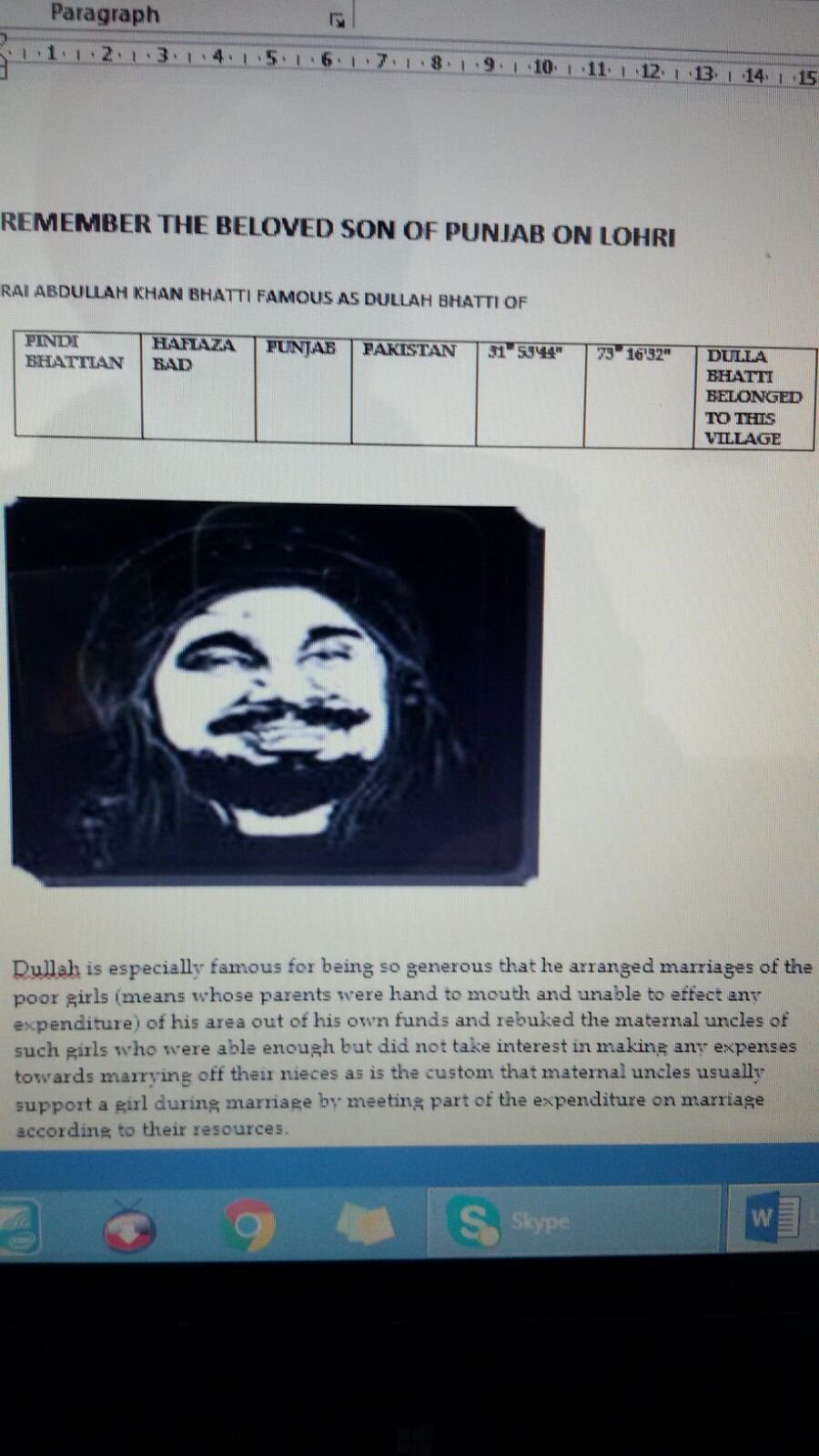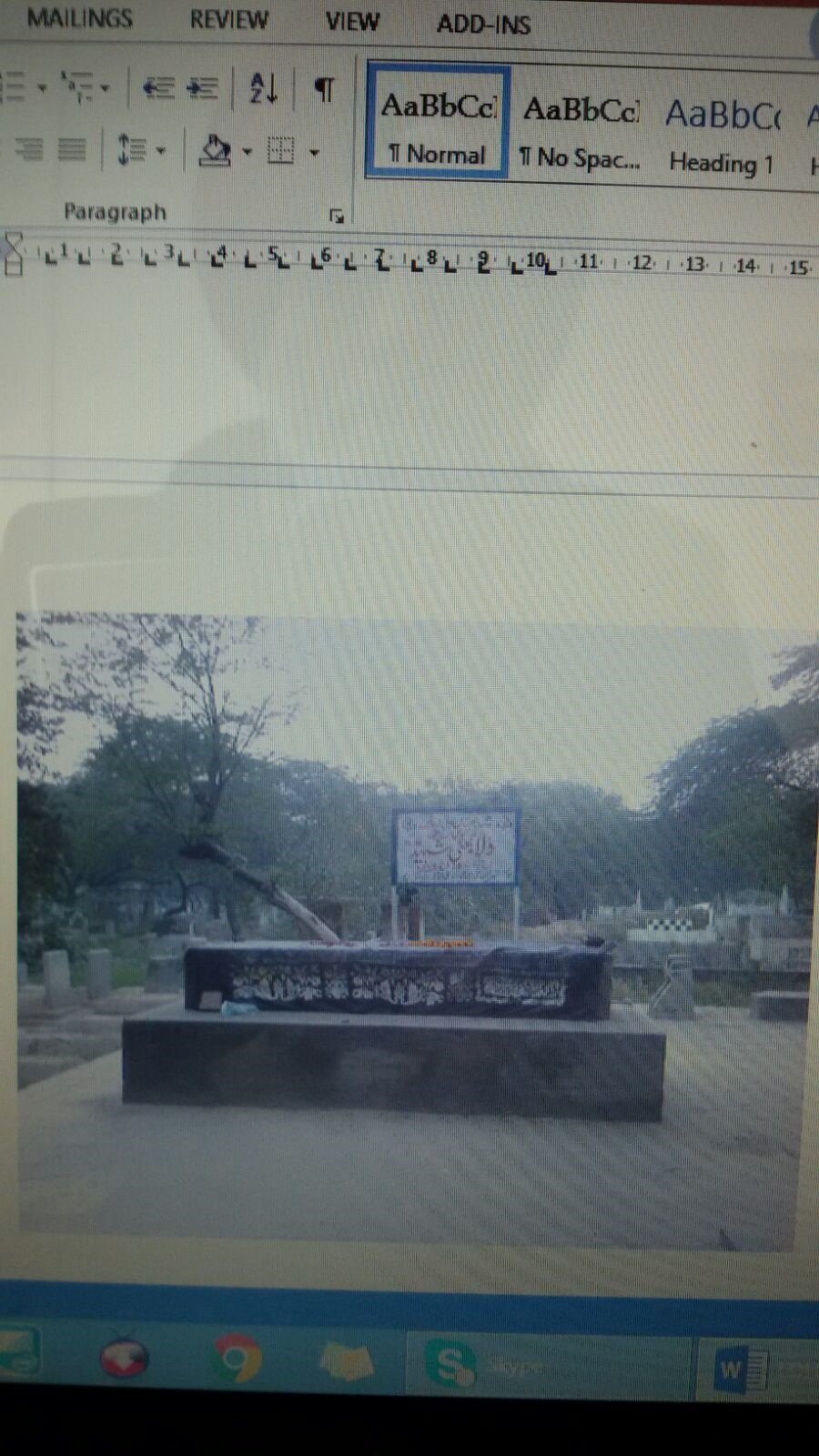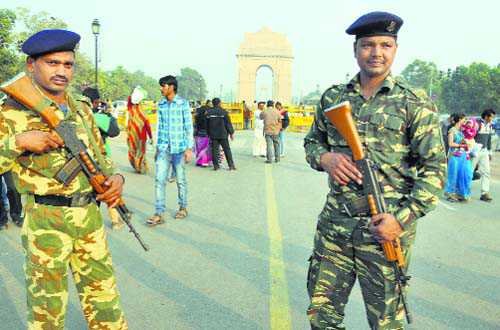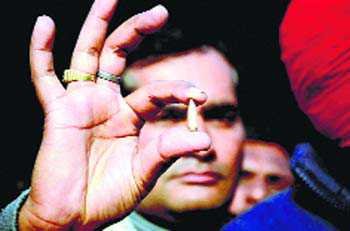

Jasmine Singh
Twenty-seven-year-old Rana is a busy man today. He lifts the 7 kilo instrument, slips the belt over his shoulders, wears a broad smile, and Rana is all set to hit it hard…Chak de dholiya, he bucks himself up. Rana, like other dholis in Chandigarh, along with the tri-city and Punjab, is stocked with the list of houses where he is invited to play. It is Lohri, and to sing the songs of the highway robber Dulha Bhatti without the high sound of dhol doesn’t sound exciting.Even though the modern day DJs scratching new notes on a Lohri party is a common practice these days, but you certainly cannot ignore a dholi and the sound of the dhol.
Hit it hard
Surinder or Bhindi Dholiwala, as he is known professionally, from sector-48 Chandigarh, has a good number of invites for Lohri. Unlike the marriage and other functions that he is regularly invited to, Lohri is more rushed. “I have more houses to visit on Lohri, sometimes people call us for 20 minutes, but they keep dancing for hours,” he shifts the weight of his dhol from right to left shoulder.
Play it on
Lohri is an occasion when the dholis seem to be most in demand, and they are expected to play the traditional notes. As Rana from 38 West Chandigarh, who has been playing dhol for almost 17 years now, adds, “I play whatever the guests ask me to, but mostly, it is the traditional Punjabi dhol which is played in Bhangra.” Rana plays the dhol with professional singers like Gippy Grewal and he can vouch on the magic that the sound of the dhol creates when it is played at any occasion, especially Lohri.Jagtar, another dholi from Chandigarh, can play anything that you want. His expertise however lies in Punjabi music on dhol, as he puts across confidently, “Sharat rahi, ek waar main dhol wajaaya, jisnu nahi nachna aanda oh vi nach paveyga.”The bookings for Lohri happen two days in advance. “On Lohri, especially we get random calls from people asking us to reach a venue immediately, and they would pay whatever we ask for. They have a deejay playing, but they want a dholi to build the tempo for the party.”
Creating the magic
Kartar Singh, international dholi from Chandigarh Sector-48, prepares bhangra-giddha troupes in school, colleges and universities. On Lohri, he already has his bookings. “The time that we are expected to play depends on how much time one has booked me for.”Kartar zeroes in on the trend which is boli and combination of dhol goes well. “Lohri is an occasion when everyone wants to dance, it is fun-filled day which people celebrate for various reasons, and we add to this celebration,” he adds but not clarifying whether he likes to play on Lohri or other occasions. “Dhol ta dhol hai ji, jithey wajao dhamaal paa dinda hai.”
FROM THE PAGES OF HISTORY
Lohri is linked with Dulla Bhatti. I will share about this great man in this posting. Dulla’s full name was:Abdulla Khan Bhatti; Born dxxuring Akbar’s regime in 1569; Mother’s name: Ladhi; Father’s name Rai Farid Khan Bhatti; Grand father’s name Sadil Khan Bhatti; were Muslim rajput; Area Pindi Bhattia, near Faisalabad in Pakistan; Dulla’s father and grandfather protested Akbar’s policy of collection of land revenue (mamla) and were hanged; Dulla was very bold and revenged against Mughal Raj; the money looted by him was distributed amongest poor and on marriages of poor girls; Dulla had great love for Hindu, as well; he freed two Hindu sisters, Sundri and Mundri from the clutches of a landlord (jagirdar) and got them married and played the role of real father; people used to worship Dulla because of his love and affection for one and all; Dulla was a big enemy of Akbar, who was fed up from because of his bravery; in a compromise bid, Akbar’s men overpowered him by mixing poison in his food/nasha and was hanged in 1599; he was just 30 years when hanged; his last rites were performed by a sufi saint Shah Hussain; his kabar is in Miania Sahib near Lahore.
How do you like this information..? Happy Lohri.
Dulla is immortal. Sundariae ne mundariae tera kon bachera, Dulla Bhattiawala……..?
More history about Dulla Bhatti. From the history worth reading and knowing from a book written by Harjit Singh Bhatti a retd SP from Vigilance Deptt. Named “Ravals and Royals” Bhattis of Greater Punjab. Book worth reading for Rs 399/- only
A BOOK FOR THOSE HAVE HISTORICAL iNTREST IN THE PUNJAB HISTORY OF THRONE AND DYNASTY OF BHATTIS,INCLUDING MAHARAJA OF PATIALA ASSOCIATION CAN BE PURCHASED
CONACT
HARJIT SINGH BHATTI
WRITER
+919872995253









